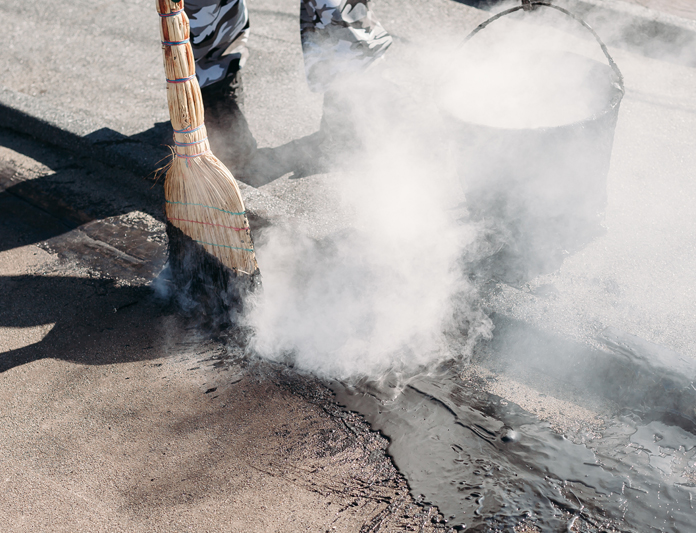Hot Tar Roof

03
Overview
A hot tar roof, also known as a built-up roof (BUR), is a type of roofing system that is made up of multiple layers of asphalt and reinforcing materials, such as felt or fiberglass. The layers are built up on the roof deck and then sealed with a layer of hot asphalt, which is applied using a kettle or mop.
Hot tar roofs are commonly used on commercial and industrial buildings, and are known for their durability and resistance to water and other weather elements. They are also relatively inexpensive and easy to install.
Advantages of a Hot Tar Roof
Durability
Hot tar roofs are extremely durable and can last for up to 20-30 years or more with proper maintenance.
Weather Resistance
Hot tar roofs are designed to withstand harsh weather conditions such as high winds, heavy rain, and extreme temperatures.
Low Maintenance
Hot tar roofs require very little maintenance and can withstand harsh weather conditions.
Cost-Effective
Hot tar roofs are an affordable option and have a relatively low cost of installation, compared to other roofing materials.
Versatility
Easy to Repair
Hot tar roofs are easy to repair and can be patched or resealed as needed to extend their lifespan.
Good insulation
Hot tar roofs provide good insulation and help keep the building cool in the summer and warm in the winter.
Good Waterproofing
High Wind Resistance
Hot tar roofs are designed to withstand high winds, making them a great choice in areas that experience severe weather conditions.
